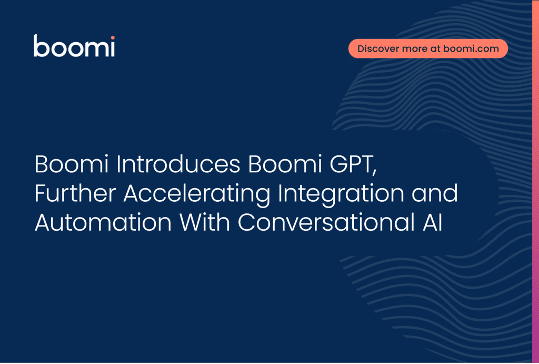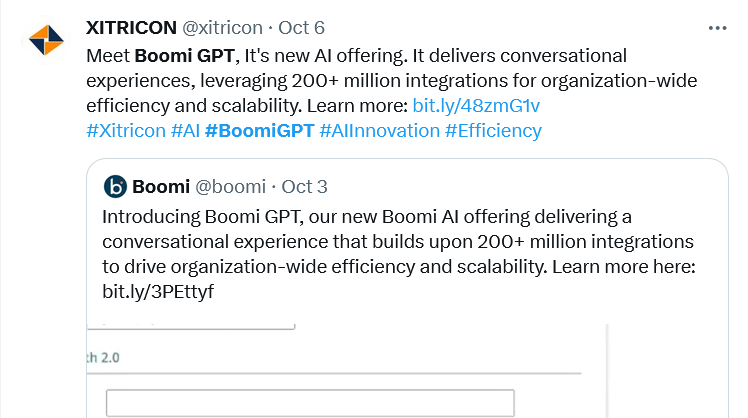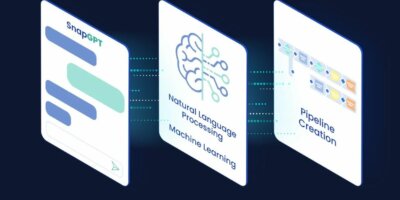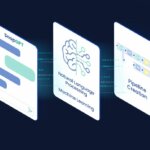
Boomi introduces Boomi GPT. (Source – Boomi)
Generative AI and NLP new horizon: How Boomi GPT is setting integration benchmarks
- Boomi GPT uses generative AI and NLP for seamless chat-like business integration.
- Aiming to democratize data and avoid traditional coding, Boomi leads in digital transformation.
- Recent studies have shown Boomi GPT to be a match for most of its competitors.
The emphasis on AI-driven solutions has never been more pronounced in the realm of technology and digital transformation than it is today. As businesses worldwide strive for a seamless, integrated experience, generative AI and Natural Language Processing (NLP) emerge as cornerstones of innovation.
Boomi’s Silicon Valley Boomi World Tour recently saw the unveiling of Boomi GPT, the inaugural feature of the Boomi AI suite. This innovation introduces a fluid, chat-like experience to the Boomi ecosystem, letting enterprises tap into generative AI capabilities to optimizing integration and automation. This, in turn, propels innovation into the mainstream and hastens desired their business outcomes.
How NLP and generative AI optimize data interaction
Similar to AI utilities that offer smart insights and deduce user intentions—shortening application development and data pipeline creation—NLP utilities, including Boomi GPT, are crafted to bolster efficiency. This is achieved by offering data engineers and similar professionals an avenue to interact with data, bypassing the traditional coding phase.
The process is straightforward: one inputs a command in everyday language, which is swiftly converted into machine-readable code, and subsequently executed by the computer.
Beyond mere efficiency, NLP’s allure lies in its promise of democratizing data interaction within organizational landscapes.
At its core, Boomi GPT aims to demystify data handling using NLP, allowing seamless data integration and preparation for analytical purposes—all without needing code. That makes it a pivotal feature for its clientele.
Ed Macosky, Boomi’s chief product and technology officer, said “With Boomi AI, organizations can dramatically accelerate and democratize this work, turning natural language requests into integrations and connections that are critical for application modernization and cloud migration. Boomi GPT, the first feature in the Boomi AI suite, will help organizations move with the speed and acumen necessary for success in today’s hypercompetitive markets.”
The market landscape
While existing Boomi clients might embrace this novel NLP feature, it’s worth noting that such advancements aren’t exclusive to Boomi in the data management and analytics arena.
The months following OpenAI’s ChatGPT launch—an embodiment of advanced generative AI—saw many vendors prioritize generative AI. Notably, MongoDB introduced its NLP feature, while companies like Informatica and Dremio built analogous tools.

Integrations are king with Boomi GPT.
Boomi, acquired by Dell Technologies Inc. in 2010, transitioned to the ownership of private equity firms Francisco Partners Management LLC and TPG Inc. by 2018. This move was influenced by Dell’s aim to alleviate its debt.
In May 2023, Boomi unveiled its AI-driven suite, Boomi AI. This bouquet of generative AI capabilities aimed to simplify connections between data, applications, processes, and people, and to ensure swift, data-informed decision-making.
The strategic move to infuse generative AI into the Boomi AI suite didn’t come as a surprise. Earlier this year, Boomi’s newly appointed CEO, Steve Lucas, in a chat with SiliconANGLE, articulated his strategy to edge past major competitors. He emphasized Boomi’s vision of not amplifying business complexities but rather streamlining and eradicating technical debt.
Modern businesses and the IT rush: the role of generative AI and NLP
Contemporary businesses across all sectors are grappling with the urgent need to innovate rapidly and realize their grand aspirations. IT departments are heavily investing in modernization and digital overhauls to boost operational efficiency and win customer loyalty.
The IDC predicts an IT expenditure of US$3.25 trillion for 2023. However, many ventures are compromised by challenges like data silos, inadequate governance, resource scarcity, and increasing security and compliance obligations. To surpass your competitors demands that these multifaceted challenges be met in today’s fast-paced environment.
In terms of rapid innovation, the application integration market, although saturated, is undergoing consolidation. This trend was set in motion half a decade ago with Salesforce Inc.’s acquisition of MuleSoft Inc. for a whopping US$6.5 billion. Concurrently, Tibco Software Inc., previously acquired by Vista Equity Partners, is merging with Citrix Systems Inc., while Thoma Bravo LP is acquiring Talend SA. Even Informatica Corp., a market frontrunner, is pursuing a significant cloud transition.
Though the application integration space is mature by the software sector’s benchmarks, Lucas believes it’s primed for disruption. On the reluctance of major software giants’ to collaborate, he said “We live in a heterogeneous world and our job is to embrace the heterogeneity of organizations from the 40-year-old technology all the way up to what is cutting-edge.”
Reflecting on competitor offerings and the future
A recent TechTarget analysis discovered that Boomi GPT’s natural language execution capabilities mirror functionalities offered by its competitors. David Menninger of Ventana Research suggested that Boomi’s overarching generative AI objectives closely align with other data management vendors’, too.
Alteryx launched Aidin in May, a generative AI mechanism in its preview phase that autonomously identifies insights and produces workflow summaries and metadata.
Likewise, Informatica’s Claire GPT, another generative AI tool still in the preview stage, is geared towards process automation and development simplification.
As an adept digital aide, Boomi GPT sketches the specified integration or software design. Users can either approve or tweak this blueprint, considerably speeding up the creation of business-essential connections and automation.
The transformative potential of generative AI and NLP tools cannot be understated in today’s digital age. As the line between human intuition and machine intelligence continues to blur, it is evident that a new era of business integration and automation is on the horizon, promising unprecedented efficiency and growth opportunities for forward-looking enterprises.
READ MORE
- Safer Automation: How Sophic and Firmus Succeeded in Malaysia with MDEC’s Support
- Privilege granted, not gained: Intelligent authorization for enhanced infrastructure productivity
- Low-Code produces the Proof-of-Possibilities
- New Wearables Enable Staff to Work Faster and Safer
- Experts weigh in on Oracle’s departure from adland






